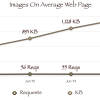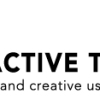
A bit from Akamai’s Guy Podjarny on the high cost of images and what you can (and should) do about it.
Images are also the single biggest resource type on a page, making up 63% of overall page weight. If we removed all images from the top 1,000 websites, these sites would load 30% faster on average over 3G.







